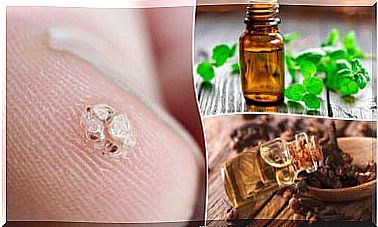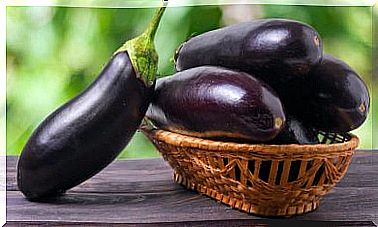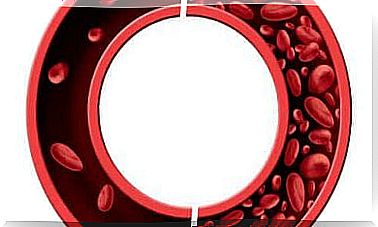Myths About Carcinogenic Components In Food
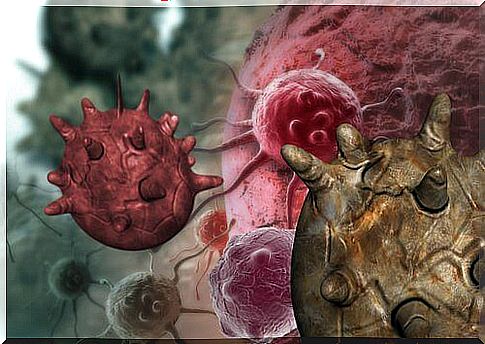
It is true that carcinogenic components in food can occur. However, you must be careful about how you interpret this information.
Cancer is the second leading cause of death in industrialized countries. There is a greater chance of developing it, the older you are. This is partly due to the amount of carcinogenic components you have been exposed to.
Unfortunately, there may also be carcinogenic components in your food.
More and more researchers are coming up with scientific evidence that certain types of food can cause you to develop cancer. Now, however, it is the case that cancer can appear for several reasons. Your diet is one of them, along with other causes, such as genes.
One thing that is certain is that eating healthy is always good for you. By following a balanced diet, you can maintain good health. In addition, you can also prevent certain chronic disorders.
At the same time, it is quite important to interpret the scientific information available today in a logical way. With this in mind, there are many articles and a lot of information that deal with this topic and that can tell us that there are certain carcinogenic components in food. In several cases, however, these statements have not been entirely truthful.

Alleged carcinogenic components in food
Processed meat
Certain meat products contain nitrate mixtures or aromatic amines to improve the shelf life of the products. This is especially the case with marinated, cured or salted foods. These mixtures can pose a health risk and be potential carcinogenic components.
However, if you have a balanced diet, it may be enough to avoid the potential serious health damage that this mixture can pose. This means that you should not eat too much meat and that you should rather eat more vegetables.
Juice and soda

Excessive consumption of beverages such as juices and soft drinks is harmful to your health. They contain large amounts of sugar. By drinking them, you increase your blood sugar level considerably.
Soft drinks and similar light products with reduced amounts of sugar contain chemicals and artificial sweeteners that are not good for your health. Some of these mixtures may contain potential carcinogenic components to some extent. However , it is not certain that they lead to cancer.
In general, the healthy choice would be to reduce the amount you drink of this type of product. Just keep in mind that this type of product is harmful to your health.
Genetically modified organisms
There is a lot of resistance to transgenic or genetically modified organisms (GMOs). Most perceptions and dissatisfaction with transgenic technology usually come from ethical aspects of sales and production, and not so much from the products themselves.
There is now some information that we can deduce from the fact that consumption of genetically modified food is not safe. Unfortunately, this can lead to the development of cancer.
In addition, these statements often criticize herbicides and insecticides. These are common products in agriculture and food production.
Therefore, make sure that you know the two main characteristics of a genetically modified crop. These crops are resistant to insects, but tolerant to herbicides. As you probably understand, there is not much that is natural with such products.
Characteristics of GMOs: Are There Carcinogenic Components?
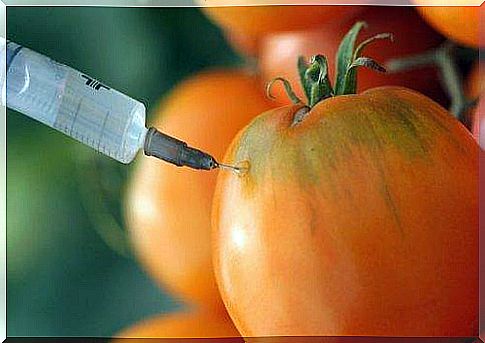
Throughout history, GMOs have undergone a number of changes:
The first characteristic change was due to a bacterial protein. Farmers have used this in organic farming since the 1930s.
The second time the traits were changed was when a bacterial gene was incorporated into the crop. This produces a protein that forms resistance to glyphosate herbicide. There has been a strong history since 1974 which indicates that this is relatively harmless. In addition, there are several scientific studies that assure us that glyphosate is not a risk factor.
The fear surrounding the assumption that genetically modified food is harmful comes from a lack of information.
In fact, we would also say that transgenic foods are organisms that have been modified or added to certain fragments with DNA. But we find DNA in all kinds of food. You get it in you from everything you eat and then your stomach breaks it down without it creating any problems for you.
Finally, due to the uncertainty surrounding GMOs, genetically modified foods are subject to strict controls and thorough processes. Results of these tests show that transgenic crops do not pose a higher risk to human health than their conventional counterpart.

